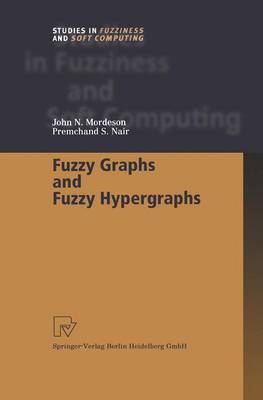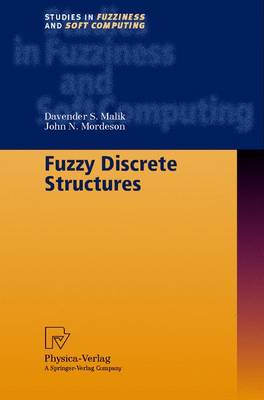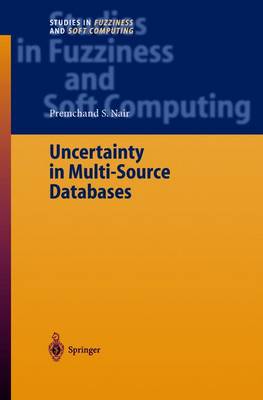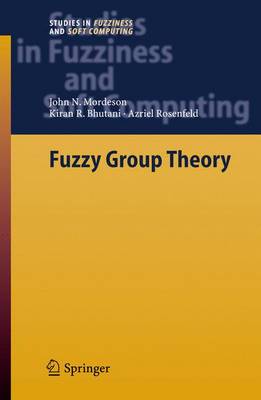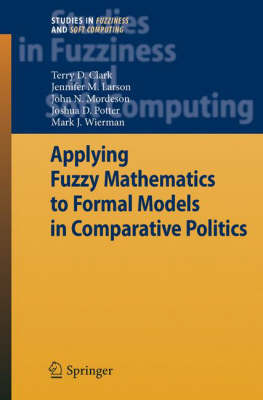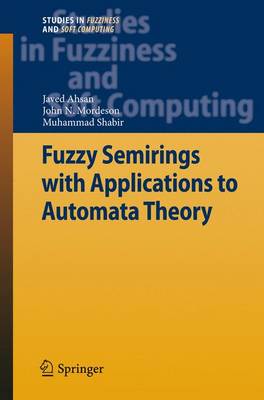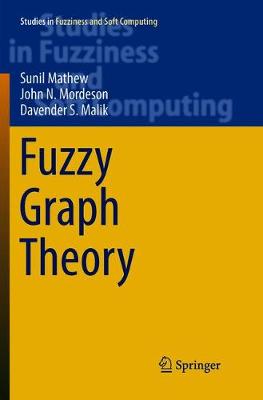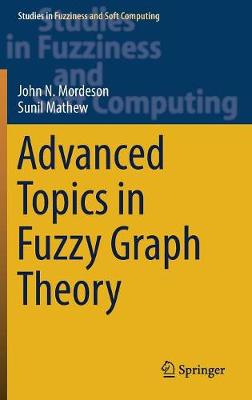Studies in Fuzziness and Soft Computing
10 primary works
Book 20
Book 46
Book 58
Book 130
Database and database systems have become an essential part of everyday life, such as in banking activities, online shopping, or reservations of airline tickets and hotels. These trends place more demands on the capabilities of future database systems, which need to evolve into decision making systems based on data...
Read moreDatabase and database systems have become an essential part of everyday life, such as in banking activities, online shopping, or reservations of airline tickets and hotels. These trends place more demands on the capabilities of future database systems, which need to evolve into decision making systems based on data from multiple sources with varying reliability. In this book a model for the next generation of database systems is presented. It is demonstrated how to quantize favorable and unfavorable qualitative facts so that they can be stored and processed efficiently, as well as how to use the reliability of the contributing sources in our decision makings. The concept of a confidence index set (ciset), is introduced in order to mathematically model the above issues. A simple introduction to relational database systems is given allowing anyone with no background in database theory to appreciate the further contents of this work, especially the extended relational operations and semantics of the ciset relational database model.
Book 131
Book 182
This book presents an up-to-date account of research in important topics of fuzzy group theory. It concentrates on the theoretical aspects of fuzzy subgroups of a group. It includes applications to abstract recognition problems and to coding theory. The book begins with basic properties of fuzzy subgroups. Fuzzy subgroups...
Read moreThis book presents an up-to-date account of research in important topics of fuzzy group theory. It concentrates on the theoretical aspects of fuzzy subgroups of a group. It includes applications to abstract recognition problems and to coding theory. The book begins with basic properties of fuzzy subgroups. Fuzzy subgroups of Hamiltonian, solvable, P-Hall, and nilpotent groups are discussed. Construction of free fuzzy subgroups is determined. Numerical invariants of fuzzy subgroups of Abelian groups are developed. The problem in group theory of obtaining conditions under which a group can be expressed as a direct product of its normal subgroups is considered. Methods for deriving fuzzy theorems from crisp ones are presented and the embedding of lattices of fuzzy subgroups into lattices of crisp groups is discussed as well as deriving membership functions from similarity relations. The material presented makes this book a good reference for graduate students and researchers working in fuzzy group theory.
Book 225
Applying Fuzzy Mathematics to Formal Models in Comparative Politics
by Terry D Clark, Jennifer M. Larson, John N Mordeson, Joshua D. Potter, and Mark J. Wierman
This book explores the intersection of fuzzy mathematics and the spatial modeling of preferences in political science. Beginning with a critique of conventional modeling approaches predicated on Cantor set theoretical assumptions, the authors outline the potential benefits of a fuzzy approach to the study of ambiguous or uncertain preference...
Read moreThis book explores the intersection of fuzzy mathematics and the spatial modeling of preferences in political science. Beginning with a critique of conventional modeling approaches predicated on Cantor set theoretical assumptions, the authors outline the potential benefits of a fuzzy approach to the study of ambiguous or uncertain preference profiles. This is a good text for a graduate seminar in formal modeling. It is also suitable as an introductory text in fuzzy mathematics.
Book 278
Fuzzy Semirings with Applications to Automata Theory
by Javed Ahsan, John N Mordeson, and Muhammad Shabir
The purpose of this book is to present an up to date account of fuzzy ideals of a semiring. The book concentrates on theoretical aspects and consists of eleven chapters including three invited chapters. Among the invited chapters, two are devoted to applications of Semirings to automata theory, and...
Read moreThe purpose of this book is to present an up to date account of fuzzy ideals of a semiring. The book concentrates on theoretical aspects and consists of eleven chapters including three invited chapters. Among the invited chapters, two are devoted to applications of Semirings to automata theory, and one deals with some generalizations of Semirings. This volume may serve as a useful hand book for graduate students and researchers in the areas of Mathematics and Theoretical Computer Science.
Book 363
This book provides a timely overview of fuzzy graph theory, laying the foundation for future applications in a broad range of areas. It introduces readers to fundamental theories, such as Craine's work on fuzzy interval graphs, fuzzy analogs of Marczewski's theorem, and the Gilmore and Hoffman characterization. It also...
Read moreThis book provides a timely overview of fuzzy graph theory, laying the foundation for future applications in a broad range of areas. It introduces readers to fundamental theories, such as Craine's work on fuzzy interval graphs, fuzzy analogs of Marczewski's theorem, and the Gilmore and Hoffman characterization. It also introduces them to the Fulkerson and Gross characterization and Menger's theorem, the applications of which will be discussed in a forthcoming book by the same authors. This book also discusses in detail important concepts such as connectivity, distance and saturation in fuzzy graphs.
Thanks to the good balance between the basics of fuzzy graph theory and new findings obtained by the authors, the book offers an excellent reference guide for advanced undergraduate and graduate students in mathematics, engineering and computer science, and an inspiring read for all researchers interested in new developments in fuzzy logic and applied mathematics.
Book 375
This book builds on two recently published books by the same authors on fuzzy graph theory. Continuing in their tradition, it provides readers with an extensive set of tools for applying fuzzy mathematics and graph theory to social problems such as human trafficking and illegal immigration. Further, it especially...
Read moreThis book builds on two recently published books by the same authors on fuzzy graph theory. Continuing in their tradition, it provides readers with an extensive set of tools for applying fuzzy mathematics and graph theory to social problems such as human trafficking and illegal immigration. Further, it especially focuses on advanced concepts such as connectivity and Wiener indices in fuzzy graphs, distance, operations on fuzzy graphs involving t-norms, and the application of dialectic synthesis in fuzzy graph theory. Each chapter also discusses a number of key, representative applications. Given its approach, the book provides readers with an authoritative, self-contained guide to – and at the same time an inspiring read on – the theory and modern applications of fuzzy graphs. For newcomers, the book also includes a brief introduction to fuzzy sets, fuzzy relations and fuzzy graphs.

